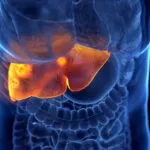Facts on Ketogenic Diet for Schizophrenia
It is important to learn about ketogenic diet for schizophrenia as managing serious mental illnesses such as schizophrenia or bipolar disorder presents a complex challenge.
The primary treatment involves antipsychotic medications, which play a crucial role in regulating brain chemistry.
However, these medications often come with a significant downside. While they address psychiatric symptoms, they can also induce metabolic side effects like insulin resistance and obesity.
These adverse effects can be distressing enough to prompt many patients to discontinue their medication regimen.
In light of this dilemma, a recent pilot study conducted by researchers at Stanford Medicine has uncovered a promising alternative approach.
Their investigation focused on the implementation of a ketogenic diet alongside standard medication protocols for individuals living with these mental illnesses. Published on March 27 in Psychiatry Research, the study revealed compelling findings.
The ketogenic diet, known for its emphasis on high-fat, low-carbohydrate intake, demonstrated remarkable efficacy in addressing both metabolic concerns and psychiatric symptoms in the participants.
By adhering to this dietary regimen, patients not only experienced improvements in their metabolic health, such as reduced insulin resistance and weight loss, but they also reported enhancements in their psychiatric conditions.
This breakthrough suggests that dietary interventions have the potential to complement traditional pharmacological treatments in mental health care. By targeting metabolic dysregulation alongside psychiatric symptoms, a ketogenic diet emerges as a potent adjunctive therapy for individuals grappling with serious mental illnesses.
These findings signify a significant step forward in understanding the multifaceted nature of mental health treatment and highlight the promising role of dietary modifications in enhancing overall well-being.
Laura Saslow, PhD, who is an associate professor at the University of Michigan, is the senior author of the study.
Dr. Sethi, who specializes in both obesity and psychiatry, had an eye-opening experience during her time as a medical student. While working in an obesity clinic, she encountered a patient with schizophrenia whose auditory hallucinations lessened when they followed a ketogenic diet.
This encounter sparked Dr. Sethi’s curiosity, leading her to delve deeper into medical research. Although there were only a few dated reports on using ketogenic diets to treat schizophrenia, there was a wealth of evidence supporting its effectiveness in managing epileptic seizures.
“The ketogenic diet has been shown to help with epilepsy by calming down brain activity,” explained Dr. Sethi. “We thought it might have potential for improving psychiatric conditions too.”
Years later, Dr. Sethi introduced the concept of “metabolic psychiatry,” a novel approach that considers mental health in relation to the body’s energy processes.
How Does Keto Help People With Schizophrenia?
The ketogenic (keto) diet has emerged as a potential adjunctive treatment for individuals with schizophrenia, offering a new perspective on managing this complex condition.
By significantly restricting carbohydrate intake (typically to about 5% of total calories) and increasing consumption of fats from sources like meats, cheeses, nuts, and dairy (up to about 80% of dietary intake), the keto diet induces a metabolic shift in the body, transitioning it from relying on carbohydrates to utilizing fats as the primary energy source.
One of the key mechanisms through which the keto diet may benefit individuals with schizophrenia is by reducing inflammation and addressing other neurobiological abnormalities associated with the condition.
While the idea of dietary interventions for schizophrenia is not entirely new, recent studies have reignited interest in exploring the therapeutic potential of the keto diet.
Historically, evidence supporting the efficacy of the keto diet in schizophrenia dates back to at least 1965, when a study involving ten women hospitalized for schizophrenia demonstrated significant symptom improvement after just two weeks on the diet, alongside their regular treatment regimen.
A noteworthy case study conducted at Duke University in 2009 further highlighted the potential of the keto diet in schizophrenia management.
The study documented the remarkable case of a 70-year-old woman who had lived with schizophrenia since her teens. Within eight days of initiating the keto diet, she experienced a drastic reduction in auditory and visual hallucinations, which had plagued her since childhood.
Remarkably, she was able to discontinue all psychotropic medications and maintain sustained improvements in her symptoms over a follow-up period of twelve years, during which she also achieved significant weight loss and regained independence.
While such anecdotal success stories are compelling, it’s important to approach them with caution. Small-scale studies in both animals and humans have shown promising correlations between the keto diet and symptom improvement in schizophrenia.
However, larger, well-controlled clinical trials are needed to validate these findings and establish the diet’s efficacy as a standardized treatment option.
While the keto diet holds promise as a complementary intervention for managing schizophrenia symptoms, it should be viewed as part of a comprehensive treatment approach alongside conventional medications, rather than a standalone solution.
Further research is essential to elucidate the diet’s mechanisms of action and optimize its integration into clinical practice for individuals living with schizophrenia.
During the four-month pilot trial led by Dr. Sethi’s team, they closely monitored 21 adult participants diagnosed with schizophrenia or bipolar disorder.
These participants were already on antipsychotic medications and exhibited metabolic abnormalities such as weight gain, insulin resistance, hypertriglyceridemia, dyslipidemia, or impaired glucose tolerance.
The trial aimed to evaluate the effects of a ketogenic diet on these individuals’ metabolic health and psychiatric symptoms.
The participants were instructed to adhere to a ketogenic diet, which involved consuming approximately 10% of their calories from carbohydrates, 30% from protein, and 60% from fat. Importantly, they were not required to count calories.
Instead, the emphasis was placed on consuming whole, non-processed foods rich in protein and non-starchy vegetables, with no restrictions on fats.
Dr. Sethi provided guidance on keto-friendly meal options and supplied participants with keto cookbooks for additional support. Moreover, they had access to a health coach to assist them throughout the trial.
To monitor adherence to the diet, the research team conducted weekly measurements of blood ketone levels. Ketones, which are acids produced when the body metabolizes fat for energy instead of glucose, served as a marker of adherence to the ketogenic diet.
By the end of the trial period, 14 patients had fully adhered to the diet, six were partially adherent, and only one had not adhered at all.
These findings underscored the feasibility and acceptability of implementing a ketogenic diet among individuals with serious mental illnesses, offering promising insights into its potential therapeutic benefits.
Can a Gluten-Free Diet Help Schizophrenia, Too?
The potential relationship between a gluten-free diet and schizophrenia has garnered attention in recent years, stemming from observations regarding the prevalence of celiac disease and gluten sensitivity in individuals with schizophrenia.
Gluten, a protein found in grains such as wheat, barley, and rye, poses significant health risks for individuals with celiac disease, an autoimmune disorder characterized by an adverse reaction to gluten consumption.
For those with celiac disease, ingesting gluten can lead to severe symptoms and complications, necessitating strict avoidance of gluten-containing foods.
Studies have highlighted a notable association between schizophrenia and celiac disease, with research indicating a higher prevalence of celiac disease among individuals with schizophrenia compared to the general population.
In a review of 11 studies examining the prevalence of celiac disease in people with schizophrenia, findings revealed that, on average, 2.6% of individuals with schizophrenia had celiac disease, nearly triple the prevalence observed in the general population, which stands at approximately 1%.
Historical observations further support the potential link between gluten consumption and schizophrenia. During World War II, patterns emerged suggesting a correlation between wheat consumption and hospital admissions for schizophrenia.
In the United States, an increase in wheat consumption coincided with a rise in schizophrenia admissions, while Scandinavian countries experienced a decrease in both wheat consumption and schizophrenia admissions during the same period.
Additionally, researchers have identified that approximately one-third of individuals with schizophrenia carry antibodies to a specific gluten protein known as gliadin (AGA IgG), indicating a potential sensitivity to gluten.
This condition, termed non-celiac gluten sensitivity (NCGS), affects approximately 10% of the general population and may contribute to adverse health effects, including neurological symptoms, in susceptible individuals.
While these findings suggest a potential role for gluten in schizophrenia, further research is needed to elucidate the mechanisms underlying this association and determine the efficacy of gluten-free diets as a therapeutic intervention for individuals with schizophrenia and gluten sensitivity.
As with any dietary modification, consultation with healthcare professionals is advised to ensure appropriate management and personalized treatment strategies.
Throughout the trial, participants underwent a series of psychiatric and metabolic assessments to gauge the effects of the ketogenic diet on their overall well-being.
Prior to the trial, 29% of participants met the criteria for metabolic syndrome, a cluster of conditions including abdominal obesity, elevated triglycerides, low HDL cholesterol, elevated blood pressure, and elevated fasting glucose levels.
Remarkably, after four months on the ketogenic diet, none of the participants exhibited signs of metabolic syndrome. On average, participants experienced a significant reduction in body weight (10%), waist circumference (11%), blood pressure, body mass index, triglyceride levels, blood sugar levels, and insulin resistance.
Dr. Sethi expressed enthusiasm for these findings, noting that the ketogenic diet could effectively reverse obesity, metabolic syndrome, and insulin resistance even in individuals taking antipsychotic drugs.
The psychiatric improvements were equally remarkable, with participants showing a 31% average improvement on a psychiatrist rating scale known as the clinical global impressions scale. Three
-quarters of the participants experienced clinically meaningful improvements, reporting better sleep, increased energy, improved mood, and greater life satisfaction.
The researchers were particularly impressed by the high adherence to the diet among participants, with most experiencing greater benefits than those who were less adherent.
This suggests a potential dose-response relationship between adherence to the ketogenic diet and its therapeutic effects.
Dr. Sethi highlighted the growing evidence suggesting that psychiatric disorders such as schizophrenia and bipolar disorder may be linked to metabolic dysfunctions in the brain.
The ketogenic diet, by providing ketones as an alternative energy source to glucose, may improve both overall metabolic health and brain metabolism, potentially alleviating symptoms of mental illness.
As the founder and director of the metabolic psychiatry clinic at Stanford Medicine, Dr. Sethi is dedicated to exploring innovative approaches to treating patients with co-occurring serious mental illness and metabolic disorders.
She emphasized the importance of addressing the unmet needs of this population and expressed hope that metabolic interventions could offer relief and improved quality of life for individuals struggling with these complex conditions.
The study, conducted in collaboration with researchers from the University of Michigan, the University of California, San Francisco, and Duke University, was supported by grants from the Baszucki Group Research Fund, Keun Lau Fund, and the Obesity Treatment Foundation.
Source: Title: Ketogenic Diet Intervention on Metabolic and Psychiatric Health in Bipolar and Schizophrenia: A Pilot Trial Authors: Sethi, S. et al. Journal: Psychiatry Research Year: 2024 DOI: 10.1016/j.psychres.2024.115866
In this study, Sethi et al. explore the effects of a ketogenic diet intervention on both metabolic and psychiatric health in individuals diagnosed with bipolar disorder and schizophrenia. This pilot trial aims to shed light on the potential therapeutic benefits of dietary interventions for these complex mental illnesses.

A graduate of Computer Science and Information Management Technology. Diploma – Caregiving, Certificates – Dementia and Diabetes Awareness and Management. A researcher, blogger, songwriter, singer and acoustic guitarist. Born in an environment where natural talents such as healing are imparted at our natural birth. This natural talents of healing is the result of our genetic inheritance and the training from family environment.























